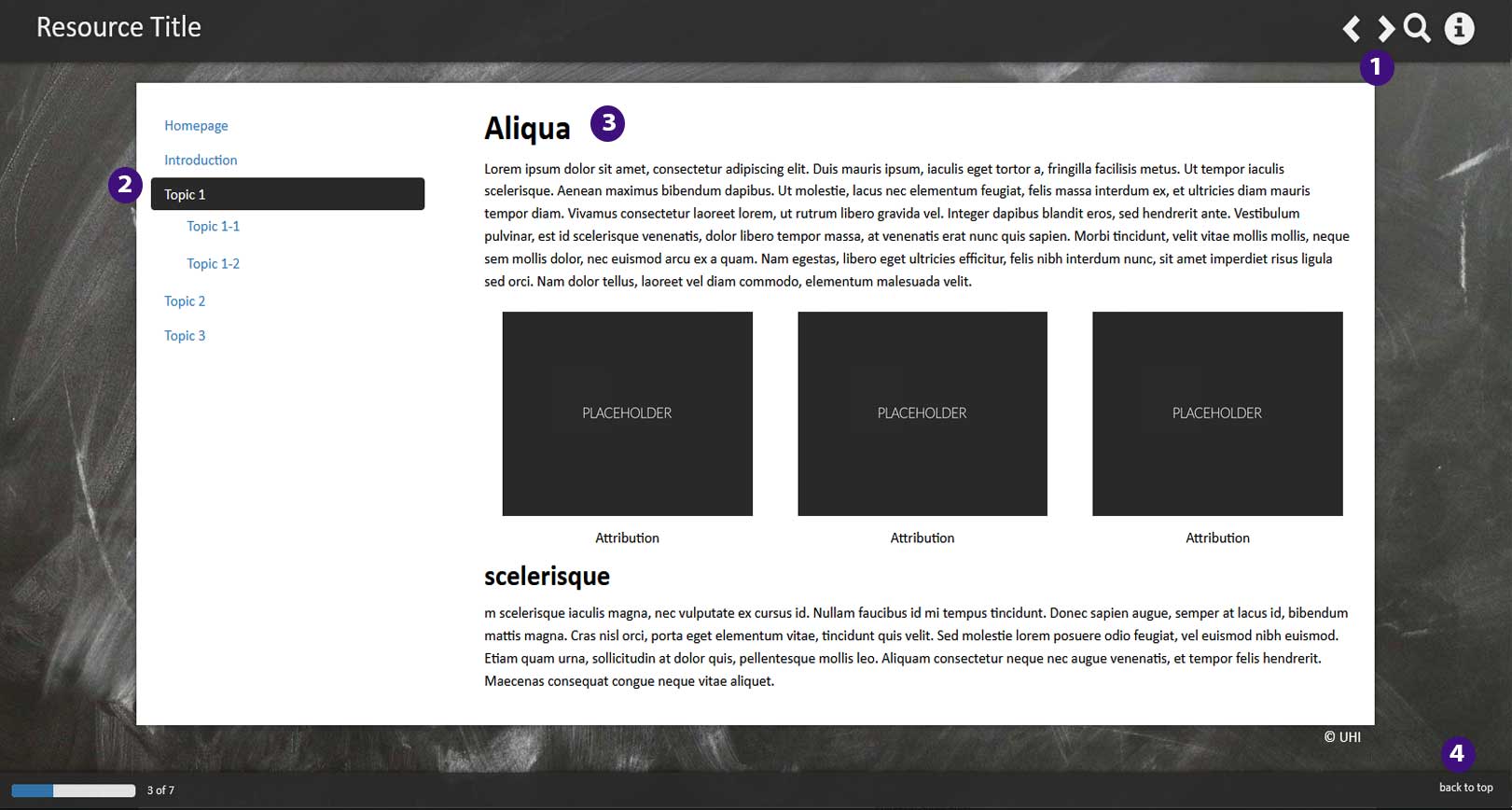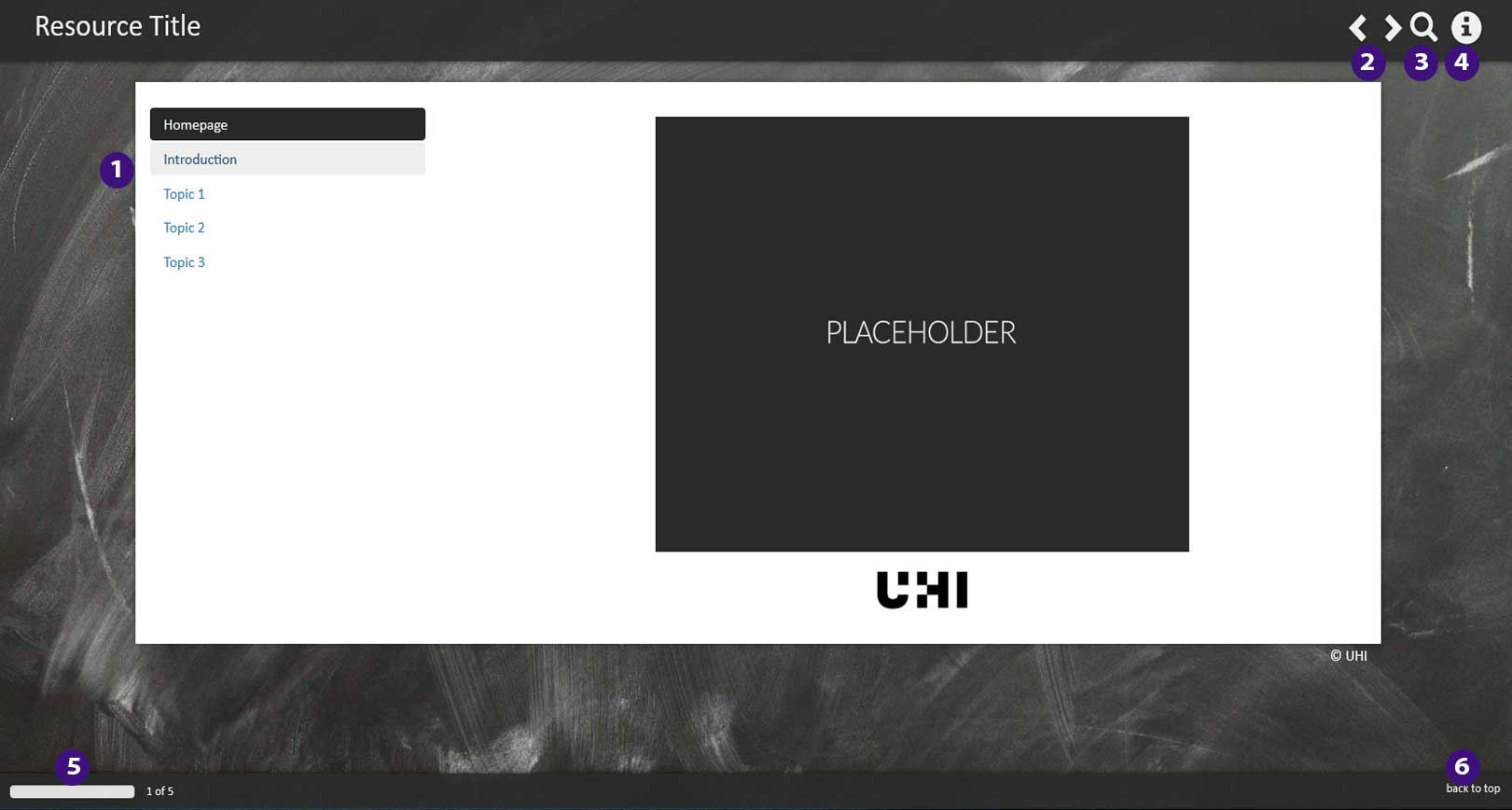Mental health support at UHI
Everyone has mental health, and it can vary.
Right now, there is a big focus on mental health in the media.
'Students feel vulnerable': How Covid-19 has put a strain on mental health (The Guardian 2020)
Student watchdog concerned about mental health gap (BBC 2021)
UK government appoints ‘champion’ to support student mental health (Pinsent Masons 2022)
We want you to have good mental health whilst you are with us, but the reality is that one in four of us will likely have poor mental health in any single year.
Right now, yours may be good, poor, or just OK. You could feel very different tomorrow or next week.
We all have situations that have a negative effect on how we feel. Don’t underestimate the impact it may have on you – and the effect it may have on your course. This is normal, but we want to help to minimise the impact so you can get on with your studies and get back to enjoying life.
Or you may already have a mental health diagnosis and are getting some of the help you need to keep yourself well.
And sometimes, you can feel that you are getting more and more down, or maybe don’t even realise it is happening until you feel unable to manage everyday life. Maybe then you need some extra help.
We want you to know that there is a lot of help and support available from us if you need it, when you need it.
UHI support
At UHI we know you have come here to study and get qualifications.
We want to let you know that we have all kinds of support that we can offer to help you to get on with your studies – and that includes support for your mental health and wellbeing.
We offer a variety of different services you can use. Everyone is different and you can choose the things that feel like they might suit you best.
This includes:
- Counselling - Counselling
- Workshops and themed groups
- Information about how to look after your wellbeing - Student wellbeing
- Crisis lines you can contact at any time of the day or night - I'm in crisis
- Personal Learning Support Plans to help with your studies - PLSP
- ...Most importantly, a judgement-free space where there is no stigma or discrimination – a safe space for everyone to study.
I'm fine - why do I need to know all this stuff?
Things have a way of happening when you least expect it and situations can change for us all, especially over the course of a year. So, it is better if you know about the support, so you can use it if you ever feel the need.
There are also pressure points throughout an academic year – assessment deadlines, exams, presentations – and for some people these can be hard to handle.
How do you know what help they could get from us?
The more we all know about how to look after your mental health, the better!
Support for you 24/7
Through our Student Assistance programme, you are able to access support at any time of the day or night, free of charge.
You don’t have to be struggling or unwell to use them. They both have information and resources designed to help your overall wellbeing and to help you get your study/life balance right.
Student Assistance Programme - Spectrum Life
This is useful for you when the college is closed, outside normal working hours, weekends and in the holidays.
You can be in touch by phone, web chat, text, or WhatsApp 24/7 365 days per year to a team of qualified counsellors and psychologists who can provide you with immediate help and support in managing whatever work or personal issues you are facing.
Phone: 0800 031 8227

Looking after your wellbeing
There are lots of ways that you can look after your mental health that can help you keep your stress levels manageable, and allow you to enjoy your time as a student.
If you check out our web pages, they give you loads of tips and hints on how to do small things that all add up to an improved life Support for your wellbeing and mental health - Staying Healthy (uhi.ac.uk).
Talking to real people
If you are feeling that things are starting to take a downwards turn for, you can reach out, to your tutor or Student Services or dedicated Wellbeing Staff.
Your institution may offer workshops on healthy lifestyles, free yoga or mindfulness sessions, healthy walks or similar. We also have a whole stack of resources available through the library service – not just books: Student Health and Wellbeing Resources , and our Digital Den: Student Wellbeing - Digital Den (uhi.ac.uk) hosts some great podcasts and links.
Check out what HISA has on offer Highlands and Islands Students' Association (uhi.ac.uk) –with clubs and societies offering activities you may want to be part of.

Counselling
Counselling gives you the opportunity to talk to someone specially trained about anything worrying you. It is a safe place to talk about anything.
All of our counselling is free, confidential, and provided by professionally qualified staff (BACP or COSCA registered).
Depending on where you are, we can offer face to face, in-person counselling at your local campus. Alternatively, we can offer real-time counselling via our on-line platform Webex. Check with your local Student Services about what is available to you Support - Student support contacts (uhi.ac.uk).
A few of our locations offer counselling with qualified counsellors through a local third-party provider.
UHI also offers online counselling via instant messenger, telephone, video call or email Support - Online counselling (uhi.ac.uk).
Personal learning support plans
Did you know that if you have a diagnosed mental health condition, you might be able to get extra help and support whilst you are studying?
It could be as simple as getting a few extra days to work, or it could involve alternative exam arrangements, specialist mental health mentoring, or other support tailored to suit your needs and your course.
The sooner you tell us, the quicker we can help to find the support your need and get it into place. You can tell anyone in Student Services or you may want to talk to your PAT. Letting us know before you start your course is best but we can still provide support if you tell us when you have started – it just may take longer to get it all in place
Anyone with a diagnosed mental health condition is entitled to reasonable adjustments – we just need to talk to you to discover what you need. Together we can co-create a Personal Learning Support Plan – tailored to your specific requirements for the course you are on. The summary of support is the part that your tutors can see, as it tells the teaching staff what support you are entitled to and what their role is in providing that support.
Get in touch with a member of Student Support and we can arrange a meeting to discuss a Personal Learning Support Plan (PLSP) with you. This helps us to ensure that you have appropriate reasonable adjustments in place to let you get on with your learning and plus any specific study-related support you may need.
Reasonable adjustments could include alternative exam arrangements, coursework adjustments, extra time (within limits!), in class support, etc. The aim of the PLSP is to reduce potential barriers to learning and let you show your true academic potential.
The Summary of Support is the only part of your agreed plan that your teaching staff can see – and that is so that they know relevant information relating to your needs and what they need to do to help you. Our web pages have further info on how your information is used during the needs assessment process. Disability matters
In the PLSP meeting (which may be face to face or online) you can make sure what we are suggesting is relevant for you, as you are likely to know best what type of support you need and what has worked for you in the past.
We may need written confirmation of your diagnosis, which can be provided by a healthcare professional. This is kept confidential and is not shared with your tutors unless you feel it is helpful.
For students studying at HE level (SCQF level 7 and above) we can discuss if you are eligible to apply for help via the DSA (Disabled Students' Allowance). Disability matters - Disabled Students’ Allowance (uhi.ac.uk)
Even if you don’t have a formal diagnosis, we are still here to help.
Get in contact with your local Academic Partner Student inclusivity Practitioner’s Support - Student support contacts (uhi.ac.uk)
Boundaries and limits
UHI, your local college/institution, are not an alternative to the NHS.
We can’t fix everything - but we can help you to find the support you need.
We can all help to make sure that this is a place free from stigma and discrimination.
We offer a space without judgement – a safe space to say how you are really feeling.
Our services are confidential – unless you are likely to harm yourself or others.
Times you might want to use our services
Below you will find scenarios. Click on the heading to expand each box.
"I could call my best pal, or Dad, he always understands" (reach out to trusted friends/family member)
"MY PAT said I could talk to them if I was struggling, and so did the people in Student Services and Wellbeing."
What is a PAT? (click here to find out)
Your Personal Academic Tutor (PAT). All students are assigned a PAT, a member of teaching staff who will support you in your studies. Your PAT will be involved in your Induction programme, monitor your progress, and provide you with on-going academic guidance and support throughout your course to help you succeed. If you have any queries, concerns or comments, your PAT should be your first point of contact. They can signpost you to help.
Student Services – list of contacts at APs ( Support - Student support contacts (uhi.ac.uk))
"I need to let someone in college know" - Student Services at your Academic Partner should be your first port of call and can direct you to other sources of specific help and support Support - Student support contacts (uhi.ac.uk)
"I want to talk to someone who won’t judge" – counsellor Student Mental Health Support - Counselling (uhi.ac.uk)
"Or I could do it online, I’d prefer that e-counselling" Support - Online counselling (uhi.ac.uk)
"It’s the weekend, I need help to get through right now" – Spectrum Life 24/7 phoneline Support for your wellbeing and mental health - Student Assistance Programme - Spectrum.Life (uhi.ac.uk)
- It helps if tutors know what you are going through
- They can refer you to the right service to make sure you get any support you are entitled to*
Disability and mental health (click to learn more)
A mental health condition is considered a disability if it has a long-term effect on your normal day-to-day activity. This is defined under the Equality Act 2010.
Your condition is ‘long term’ if it lasts, or is likely to last, 12 months.
‘Normal day-to-day activity’ is defined as something you do regularly in a normal day. This includes things like using a computer, working set times, or interacting with people.
- We need to be able to make reasonable adjustments to help you
- If you have a diagnosis, you may want a personal support plan (see next box)
- I got a PLSP because of my depression and it has really helped me.
What is a PLSP? (click to find out)
Personal Learning Support Plan (PLSP) – this is a confidential document, put together with yourself and one of our staff. It outlines the issues you have and how these can be taken into account whilst you are studying and states any reasonable adjustments, we can make for you. It normally needs some evidence, such as a letter from a health care professional. Only the information about the support you need is available to your tutors, so they know what they need to do for you. Disability matters - Accessing learner support (uhi.ac.uk)
- Or you could make an appointment with the counselling service if you want to talk about it in depth.
- Have you checked if the college offers any specific support for anxiety? Some of them do, with workshops and support groups.
The world is made up of diverse groups of people and sometimes it helps to know you are not the only one who feels this way.
Here at UHI we are proud to offer opportunities to a wide range of people and we want to do what we can to make sure you don’t feel isolated or excluded.
You also need to know about our Equality policy Equality, Diversity and Inclusivity Policy (uhi.ac.uk) and the Student Code of Conduct which specifically protect you from bullying, harm, and abuse.
You can always get support using our Student Assistance Programme - Support for your wellbeing and mental health - Student Assistance Programme - Spectrum.Life (uhi.ac.uk). The phoneline is available 24/7.
There are books and resources available for you to look at using LibGuides at University of the Highlands and Islands, relating to various conditions and statuses
- You may be exploring your sexuality and gender and be gay, lesbian, bisexual, trans or unsure of your sexuality right now. Here are some places you can connect with others
- HISA has a variety of clubs and societies including LGBTQ+ Groups @ Highlands and Islands Students' Association (uhi.ac.uk)
- Switchboard LGBT+ Helpline
- The Trevor Project | For Young LGBTQ Lives
- Home | Gendered Intelligence
- Home - Scottish Trans Alliance
- You may be on the autistic spectrum – you can contact Student Services at your local partner and talk about what support you can access –
- there may be a quiet space where you can get away from external stimulus
- you may want a consider if a support plan would be useful (PSLP info)
- Ambitious about Autism | National charity for autistic children and young people
- You may have arrived in Scotland from elsewhere in the world to study… to most of your fellow students, which may make you feel isolated, and if you have recently arrived in Scotland, you may be finding it hard to adapt to a new culture, as well as language and accents. Making links with others in the same situation can help to make you feel more connected.
- Check out some of our wellbeing resources and see if there is something you can do to improve your mood Student Wellbeing - Digital Den (uhi.ac.uk) and Staying Healthy - Student Wellbeing (uhi.ac.uk)
- If it feels really bad, use our Support for your wellbeing and mental health - Student Assistance Programme - Spectrum.Life (uhi.ac.uk) with their 24/7 phoneline if you need to talk or call Samaritans on 116 123 any time, day or night Contact Us | Samaritans

Don’t struggle on without getting in touch with someone. We can all find it hard, but there are plenty of people and resources to help you find the best way for you.
- Make an appointment with your PAT (link to previous pop out about PATs) – they are here to help you on your course.
What is a PAT? (click here to find out)
Your Personal Academic Tutor (PAT). All students are assigned a PAT, a member of teaching staff who will support you in your studies. Your PAT will be involved in your Induction programme, monitor your progress, and provide you with on-going academic guidance and support throughout your course to help you succeed. If you have any queries, concerns or comments, your PAT should be your first point of contact. They can signpost you to help.
Student Services – list of contacts at APs ( Support - Student support contacts (uhi.ac.uk))
- Look at some of the information in Essential student skills (uhi.ac.uk) – click on the link at the side about ‘becoming an effective learner’ – there is some good stuff there for everyone
- Think about setting up a peer support study group Support with your studies - Peer support (uhi.ac.uk) – it could benefit more people than just you? Or see if there already is one for your course
- Ask your local Student Services Support - Student support contacts (uhi.ac.uk )about any learning support they offer – it could be they can organise someone to give you a hand to get organised and work out a study plan and a way of doing things
- Support with your studies - Thinking of leaving? (uhi.ac.uk) if it is making you consider stopping your course, then please talk to a member of staff as soon as you can. There may be things we can do to help, or help you swap to another course, and we can give you advice about the financial implications as well.























